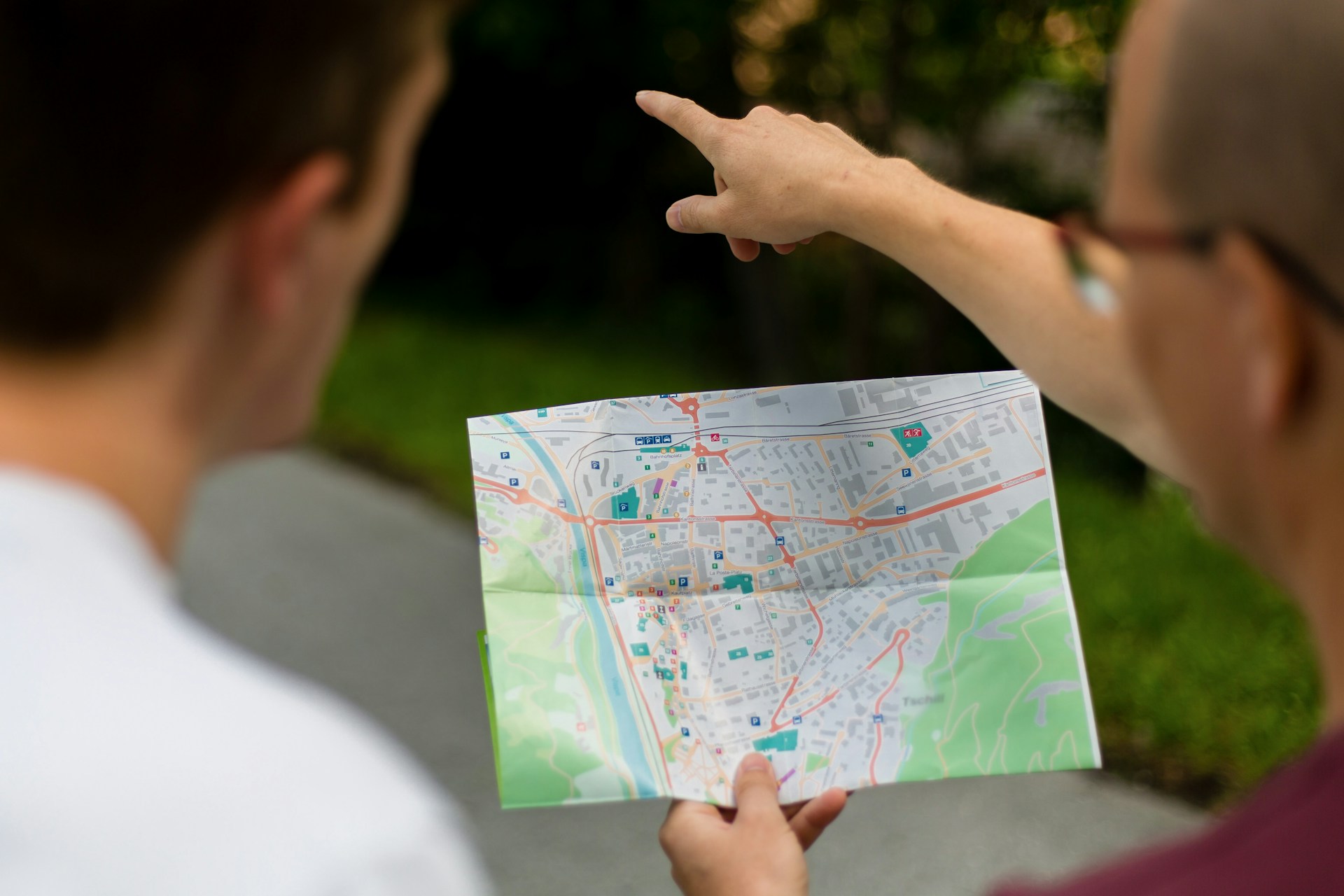Integrating cutting-edge technology is paramount to enhancing operational efficiency and guest experiences in the hospitality industry. One of the most significant advancements in recent years is implementing location-aware services.
Integrating cutting-edge technology is paramount to enhancing operational efficiency and guest experiences in the hospitality industry. One of the most significant advancements in recent years is implementing location-aware services.
These services leverage real-time location data to provide personalized experiences, streamline operations, and improve overall guest satisfaction. This article covers the various aspects of location-aware services in hospitality.
It will explore their benefits, applications, and the future potential they hold.
Understanding Location-Aware Services
Location-aware services utilize GPS, Wi-Fi, Bluetooth, and beacon technology to help determine guests' precise location within a property or geographic area.
By harnessing this data, hotels and other hospitality businesses can offer tailored services that meet their guests' specific needs and preferences.
Technologies behind Location-Aware Services
- Global Positioning System (GPS): The GPS is a satellite-based system that provides time and geolocation information to a receiver anywhere on the globe. It is widely used for outdoor location tracking.
- Wi-Fi positioning: Wi-Fi positioning uses the locations of Wi-Fi access points to determine a device's location. It is particularly effective in indoor environments where GPS signals may be weak or unavailable.
- Reverse geocoding API: This technology converts geographic coordinates (latitude and longitude) into human-readable addresses. It allows hospitality services to provide context-aware assistance by determining the exact address or place a guest is currently located.
- Bluetooth and beacons: Bluetooth-based solutions, including beacons, are used for proximity sensing and indoor navigation. Beacons are small devices emitting a Bluetooth signal and can trigger specific actions when a user's device enters range.
Benefits of Location-Aware Services in Hospitality
Location-aware services offer a range of benefits for both hotels and their guests.
Enhanced guest experience
Upon arrival, guests can receive personalized welcome messages and information about their room preferences, like temperature settings and preferred amenities. Hotels can provide guests with tailored recommendations for dining, activities, and events based on their location and preferences.
Seamless navigation
Guests can use their smartphones to navigate large hotel properties or resorts. Indoor maps and turn-by-turn directions can help them find their rooms, restaurants, conference rooms, and other amenities.
Location-aware services can guide attendees to the right sessions and meeting rooms for conferences and events, enhancing their overall experience.
Improved operational efficiency
Location-aware services can help optimize housekeeping and maintenance schedules by tracking guest movements and room occupancy. That ensures that rooms are cleaned and maintained efficiently without disturbing guests.
Guests can use mobile apps to request real-time services such as room cleaning, extra towels, or maintenance. These requests can be routed to the nearest available staff member for prompt attention.
Resource management
By monitoring guest movements, hotels can manage energy usage more effectively. For example, air conditioning and lighting can be adjusted based on room occupancy, reducing energy waste and lowering costs.
Location-aware services can assist in the dynamic allocation of staff based on real-time needs, ensuring that guest services are delivered promptly and efficiently.
Enhanced safety and security
In an emergency, location-aware services can help track the whereabouts of guests and staff, facilitating a swift and coordinated response. Indoor navigation systems can provide guests with the quickest and safest evacuation routes during emergencies, improving overall safety.
Guest monitoring
For family-friendly resorts and hotels, location-aware services can help parents monitor their kids' whereabouts within the property. High-profile guests can benefit from enhanced security measures that monitor their location and ensure privacy and safety.
Applications of Location-Aware Services
Location-aware services are revolutionizing how we interact with our environment. Read on to learn about their relevance to the hospitality industry.
Hotel check-in and check-out
- Contactless check-in: Guests can check in using their mobile devices as they approach the hotel, bypassing the front desk. That reduces wait times and enhances convenience.
- Express check-out: With automated billing and receipt delivery, guests can check out hassle-free via mobile devices.
Personalized marketing and promotions
- Targeted offers: Hotels can send targeted promotions and offers to guests based on location and behaviour. For instance, a guest near the spa might receive a discount on spa services.
- Event notifications: Guests can receive notifications about on-site events, activities, and entertainment options, which encourages them to participate and enhances their stay.
Dining and room service
- Smart menus: Restaurants within the hotel can offer digital menus that update based on the guest's location. Guests can scan the menu, place orders, and receive personalized recommendations.
- Location-based room service: Room service can be delivered more efficiently by tracking the guest’s location within the hotel, ensuring timely and accurate delivery.
Concierge and guest services
- Virtual concierge: Guests can access virtual concierge services via mobile devices, receiving personalized recommendations and assistance based on location.
- Service requests: Guests can make real-time service requests, such as booking a taxi or reserving a table at a restaurant, with location-aware apps ensuring quick response times.
Events and conferences
- Interactive maps: Event attendees can use interactive maps to navigate the venue, find sessions, and locate exhibitor booths.
- Networking opportunities: Location-aware services can facilitate networking by identifying and introducing attendees with similar interests who are nearby.
Loyalty programs
- Geofencing rewards: Hotels can set up geofences around specific areas, such as the lobby or spa, and reward guests who enter these zones.
- Location-based points: Guests can earn loyalty points for visiting specific locations within the hotel, such as dining at an on-site restaurant or attending a hosted event.
Challenges and Considerations
Location-aware services are revolutionizing the hospitality industry. However, they come with some challenges and considerations.
Privacy concerns
Protecting guest data is paramount. Hotels must implement robust security measures to prevent unauthorized access to location data. Guests should be informed about how their location data will be used and can opt out of location tracking.
Technological integration
Ensuring location-aware services are compatible with existing hotel management systems and mobile apps can be challenging. Regular updates and maintenance are required to keep these systems functioning smoothly and accurately.
Cost implications
Implementing location-aware services requires an initial investment in hardware, software, and staff training. There are ongoing expenses tied to maintaining and updating the technology and potential subscription fees for third-party services.
The Future of Location-Aware Services in Hospitality
Several current trends are shaping the future of location-aware services in hospitality.
Advances in technology
- AI and machine learning: Integrating AI and machine learning with location-aware services will enable more sophisticated data analysis and personalized guest experiences.
- 5G connectivity: The rollout of 5G networks will enhance the accuracy and speed of location-aware services, enabling real-time data processing and seamless connectivity.
Expanded applications
- Augmented Reality: AR can be combined with location-aware services to provide immersive experiences, such as virtual tours and interactive guides.
- Health and wellness: Location-aware services can promote health and wellness, such as guiding guests to fitness centres, walking paths, and wellness activities.
Sustainable practices
- Resource optimization: Location-aware services can improve resource monitoring and management, contribute to sustainable practices, and reduce hospitality operations' environmental impact by monitoring and managing resources more effectively.
- Green initiatives: Hotels can use location data to promote green initiatives, such as encouraging guests to participate in recycling programs and energy-saving activities.
Embracing the Future of Hospitality
Location-aware services are revolutionizing the hospitality industry by offering unparalleled personalization, efficiency, and safety. As technology advances, these services' potential applications and benefits will expand, providing even greater opportunities for enhancing guest experiences and optimizing operations.
By embracing location-aware technology, the hospitality industry can stay ahead of the game, meet the evolving expectations of modern travellers, and create memorable, tailored experiences that set them apart from the competition.









